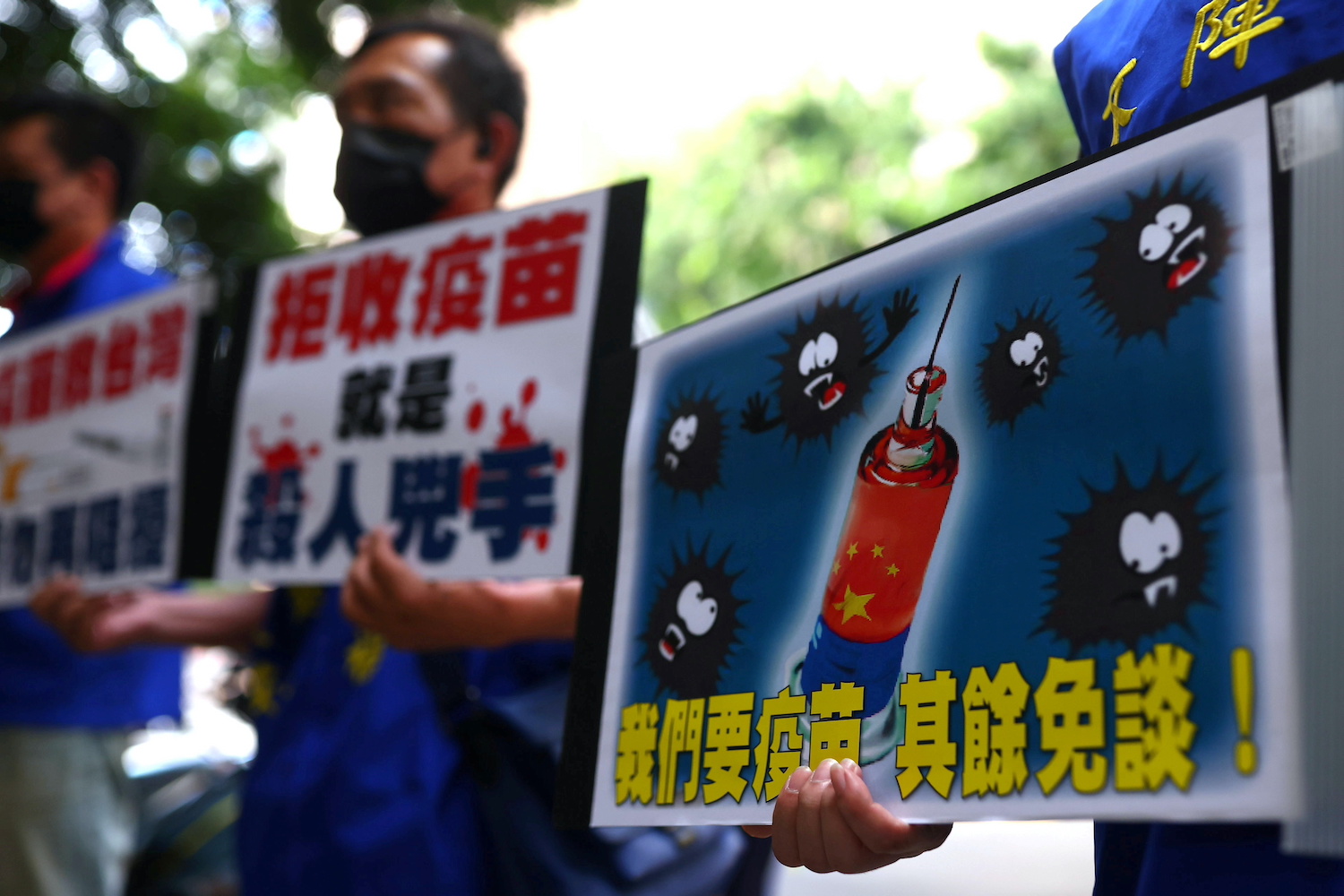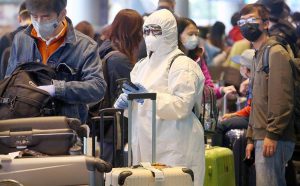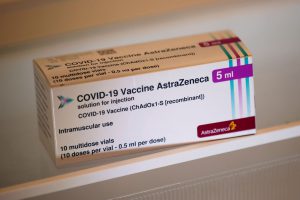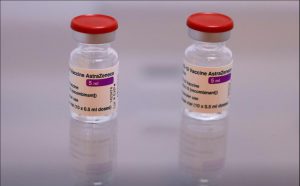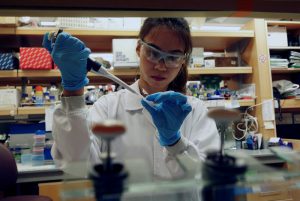While Covid outbreaks have hit the domestic business scene, the island’s exports, dominated by manufacturing giants such as TSMC and Acer, have kept the economy strong, but delays in sourcing vaccines are still not resolved
(AF) Acer, the world’s fifth biggest PC maker by market share, says demand is exceeding the company’s ability to meet orders due to global demand for tele-work and home study. Company revenue hit $896 million in May, the highest in seven years for the same month and up 23% over May 2020. Acer announced four new Chromebooks last month, which are thin laptops geared toward students.
“In the past, families may have one or two PCs at home, and now many families require one PC per person,” a company spokesperson said on Friday for this report.
Companies such as Acer help explain why Taiwan’s Directorate-General of Budget, Accounting and Statistics raised the island’s 2021 economic forecast to 5.46% last week from 4.64% despite the island’s first mass closures due to a Covid-19 outbreak.
This is despite all recreation sites, plus cinemas, restaurants and a lot more services being ordered to close through till June 28.
Economists agree that most growth this year will come from the manufacturing sector, starting from the first quarter before Taiwan began grappling with Covid-19. Factories are allowed to operate as normal, while a world semiconductor shortage is keeping chipmakers in business and with big plans to expand.
Heavy rain most of the month to date has filled reservoirs, taking pressure off factories that earlier in the year had to find private sources of water to sustain production.
“The pandemic did and continues to cause impacts on private consumption,” said Darson Chiu, research fellow with the Taiwan Institute of Economic Research think tank in Taipei. “However, Taiwan’s manufacturing and exports in goods has remained strong and solid so far. That’s a reason behind the upward adjustment.”
Chipmakers lead the way
Taiwan’s chipmakers, a pillar industry and one of the world’s largest of its type, are working to overcome a global shortage of semiconductors. Global pandemic-era PC purchasing for telework pushed up demand, while 5G phones and automated vehicles added orders.
Producers such as Taiwan Semiconductor Manufacturing Company (TSMC) are planning expansions worth more than $100 billion over the next four years.
“The shortage is still pretty severe across tech supply chain and that continues to drive up overall prices faster than expected,” Jamie Lin, chairman and partner with the AppWorks startup accelerator in Taipei, said.
“At the same time, most manufacturing that still takes place in Taiwan is less labour-centric hence jobs can be done remotely,” Lin said. “Therefore, even if the pandemic removes some labour from the workforce and prevent many from entering into the office, the rise in prices would more than offset that.”
Taiwan’s closure orders, plus the dearth of shoppers in the street, is expected to strike hardest at food and beverage along with events, entertainment and recreation. Food and beverage come to less than 20% of GDP while services overall account for 60%, Chiu estimates.
The Aussie Café, for example, on a back alley in central Taipei normally gets 50 people a day and more on weekends. Taiwanese owner Chien Chia-hsing has painstakingly decorated the six-year-old cafe with souvenirs from Australia where he once lived, installed couches and even a bed as seating and integrated his docile, sociable poodle into the mix.
When Taipei banned all dine-in service in late May to keep people apart, Chien like peers throughout the restaurant sector switched quickly to takeaway. He hung a window sign. He offers 50% discounts. He added curry rice to the takeaway menu to entice lunch customers.
But he’s getting just 10% of his usual income based on the trickle of people who know about his location. “We have a bit of income to get by covering costs for this period, but it’s already been a long time,” Chien said on Thursday afternoon. He was the only person on site.
Google mobility data show that retail and recreation activities have fallen 50% from the normal levels since late May, according to analysis by DBS Bank.
Taiwanese entrepreneurs will adapt more adeptly if not reliant on brick and mortar, said Jeffrey Wu, president of the 40-member Digital Economy Association Taiwan.
Wu is the CEO of WeMo Scooter, a rental service with 6,000 vehicles. WeMo has steered a few hundred of those scooters toward restaurateurs who need to get takeaway food to people’s doorsteps. Customers without scooters are renting them to pick up food too, Wu said. This type of service could rise to 20%-30% of revenue by September, he forecast.
He expects more scooters – many idle as people voluntarily avoid going out during the pandemic – to be repurposed for food delivery since dine-in is banned. Delivery giants such as Food Panda and Uber Eats don’t have enough manpower for all of Taiwan’s takeaway orders, he explained.
“We’re able to quickly manage and turn our resources around,” Wu said, adding that revenue dropped 40% in May. “There’s a huge white space to fill. There’s not enough supply.”
Vaccine delays
But perhaps the biggest concern is the hold-up in sourcing supplies of Covid vaccines.
President Tsai Ing-wen revealed on Friday that the arrival of vaccines had been delayed in Taiwan because Thai officials had prioritised AstraZeneca vaccines produced in Thailand for itself due to the severity of the pandemic there. Indeed, the situation in Bangkok has stalled the supply of vaccines to numerous countries in Southeast Asia as well, including the Philippines and many of Thailand’s neighbours.
In Taiwan, only 3% of its 23.5 million people have received a vaccination shot so far, and millions of doses on order that have yet to arrive.
“The problem is that the goods that were supposed to have arrived in June have not,” Tsai told a Taiwanese radio station. Taiwan had ordered 10 million doses from AstraZeneca, but they were mainly being produced in Thailand, she said.
“Now Thailand’s epidemic situation is serious and they are giving priority for vaccines to be used in Thailand,” Tsai added. Thailand has reported 189,828 infections, with over 80% of the new cases and fatalities coming since April.
Taiwan’s health minister told lawmakers on Tuesday that orders from AstraZeneca would be delayed by a month due to production problems at the firm’s Thai plant.
Officials in Beijing said on Friday it welcomed Taiwanese to come and get vaccinated against Covid-19 and called on Taiwan to remove obstacles and allow its people to receive the “highly effective” Chinese shots. But there has been scepticism about the safety of Chinese shots and Taipei has not cleared them for use.
China’s Taiwan Affairs Office said in a statement two Chinese-made vaccines had been granted emergency use authorisation by the World Health Organization and its shots were in use or approved by more than 90 nations, which showed they were safe and effective.
Taiwan people could come to the mainland to get vaccinated against Covid-19, provided they comply with China’s pandemic control measures, the office said. It urged Taipei to “quickly remove artificial obstacles for mainland vaccines being sent to Taiwan and allow the broad mass of Taiwan compatriots to receive the safe and highly effective mainland vaccines”.
Still, China’s offer is not likely to be attractive to many Taiwanese. A poll by Taipei’s National Chengchi University last month showed most people would not be willing to get a Chinese vaccine.
A Taiwan security official told Reuters the offer was another example of a Beijing influence campaign to sway public opinion on the island. “This could be attractive for some people but the problem is not many people can afford the costs,” the official said, pointing to the expense and weeks in quarantine needed to travel between Taiwan and China.
Meanwhile, Taiwan received 1.24 million AstraZeneca doses donated by Japan last week, and the United States has pledged 750,000 shots, but no details have been provided on that.
Tsai said the government had been having “emergency” talks with the United States and Japan to see what other vaccines they may be able to give.
With reporting by Reuters
ALSO SEE:
Why Taiwan is booming as the world economy sinks
Taiwan investors prefer home comforts but new lands tempt too




